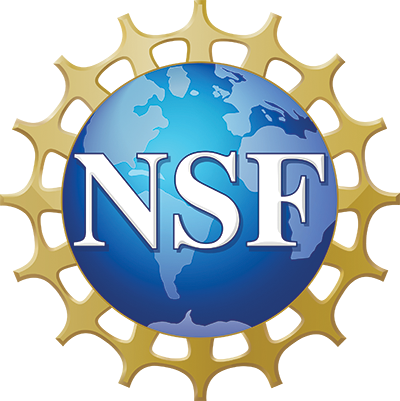Past Summer Projects
CICF Student Fellows have the option to apply for a hands-on project-based learning experience at either an MF or a CI Compass institution during the summer. Spaces are very limited, so summer placement is not guaranteed and requires an additional application process that takes place during the Spring Program.
Here is a list of past summer projects:
Summer 2023 with NCAR
Raja Ali (CICF 2023)
This summer at NCAR has been nothing but transformative for me! I've been involved in enhancing the Ionosphere Dynamo Model, a sizable Fortran codebase set to be incorporated into WACCM-X, an advanced Earth atmosphere model. It's been an eye-opening journey learning the ins and outs of working in a research setting at a place as significant as NCAR.
From setting up a CI/CD Pipeline from scratch for the model for automated testing purposes to creating a namelist file that boosted the model's computational efficiency by 117% by eliminating recompilation time, I've gotten a real deep dive into the technologies used in Climate and Atmospheric Science, as well as what common technologies are being used in the cyberinfrastructure space by most major facilities. It's been a pleasant surprise to experience the sense of collaboration at NCAR. Everyone's eager to pool their knowledge and lend a hand, which creates a supportive environment despite the technically demanding nature of our work.
Edward Lin (CICF 2022)
At NCAR I was able to immerse myself in a research environment through meetings and activities. Interacting with scientists and engineers provided me with insight into what a potential career in research could look like. On top of that, I worked on a project involving the classification of weather tweets which combined my interests in natural language processing and the research done at NCAR.
Eddie Mayor (CICF 2023)
I have been observing and participating in the NCAR_NEON project, which connects powerful models with NEON's measurement network, bringing together ecology and earth science. The goal is to predict how Earth's systems will impact ecosystems. I’ve learned how NCAR gathers NEON data sets, processes them for model input, and uses data analysis and visualization techniques so that various audiences can understand their research.
Bhagya Ram (CICF 2023)
I'm working at the Atmospheric Chemistry Observations and Modeling division at NCAR. At my internship, I'm working on MusicBox, a web-based model that simulates the chemistry and transport of trace gases and aerosols in the atmosphere. I'm working on the model's front-end, utilizing Javasript, Django and React. I'm very thankful for this opportunity. I'm learning a lot, and I'm excited to draw on my experience in the future!
Mahee Shah (CICF 2023)
During the summer, I had the privilege of working at NCAR to explore the field of machine learning. The first part of my summer was dedicated to in-depth research and experimentation with various modeling softwares. The second half was spent deconstructing a project on Natural Disaster Tweets Classification, with the goal of comprehensively understanding its intricacies while attempting to replicate its outcomes.
Summer 2023 with OOI
Gareth Oram (CICF 2023)
I worked for WHOI designing a “scraping tool” to extract desired information from data logs. The data logs were transmitted through wires and wirelessly from buoys that collect oceanographic data. My program also functioned as a sorting tool to sort the desired information into four different categories.
Calloway Sutton (CICF 2023)
I worked on two main projects while at WHOI, upgrading the document management system and working on a way to search through OOI’s large video dataset. For the first project I got to learn about the various different DMS’ on the market such as Alfresco, Mayan, and SmartyPants as well as some potential alternatives to a DMS like Gitlab, Onbase and the large list of cloud drive providers. For the second project, I had the opportunity to use my previous knowledge in machine learning to work on making a system which could efficiently search through petabytes worth of videos with little compute.






